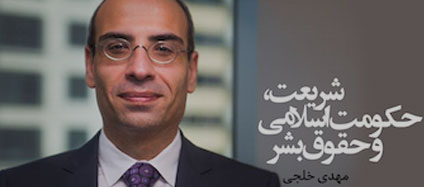The emergence of an armed group calling itself “Islamic State” has once again highlighted the question of the compatibility of Islam with human rights. Since the beginning of the twentieth century, Islamist movements in countries such as Egypt, Pakistan, and Iran have been calling for the establishment of an “Islamic” government, one of the main pillars of which would be the implementation of sharia (Islamic law). The idea of state implementation of sharia is a new one and does not have a precedent in the Islamic tradition. In the past, the caliph was an Islamic ruler in the sense that he was responsible of the security of the Dar al-Islam (Islamic territories).
The issue of states implementing their interpretations of sharia, however, is not limited to “Islamic governments” such as the Islamic Republic of Iran, the Taliban, and Islamic State/ISIL. Even in Saudi Arabia, which is not technically a “theocracy,” sharia is implemented. The constitutions of most Muslim countries incorporate important elements of sharia, especially in matters related to personal status and individual and social freedoms. In other words, sharia is a pervasive issue in the Muslim world.
Today, the implementation of Islamist interpretations of sharia and “Islamic government” has been linked to serious violations of human rights. Can human rights and Islam be reconciled? Could sharia and Islamic jurisprudence be made compatible with human rights? Can there be an Islamic government which respects human rights? Can one be a Muslim without believing in sharia?
This webinar series investigates the relationship between sharia, Islamic government, and human rights, examining the historical backgrounds of the relevant concepts and exploring how Muslims could legitimize human rights in an Islamic context. Led by religious scholar and Tavaana faculty member Mehdi Khalaji, the series takes a philosophical, historical, epistemological, and sociological approach in its discussions.








